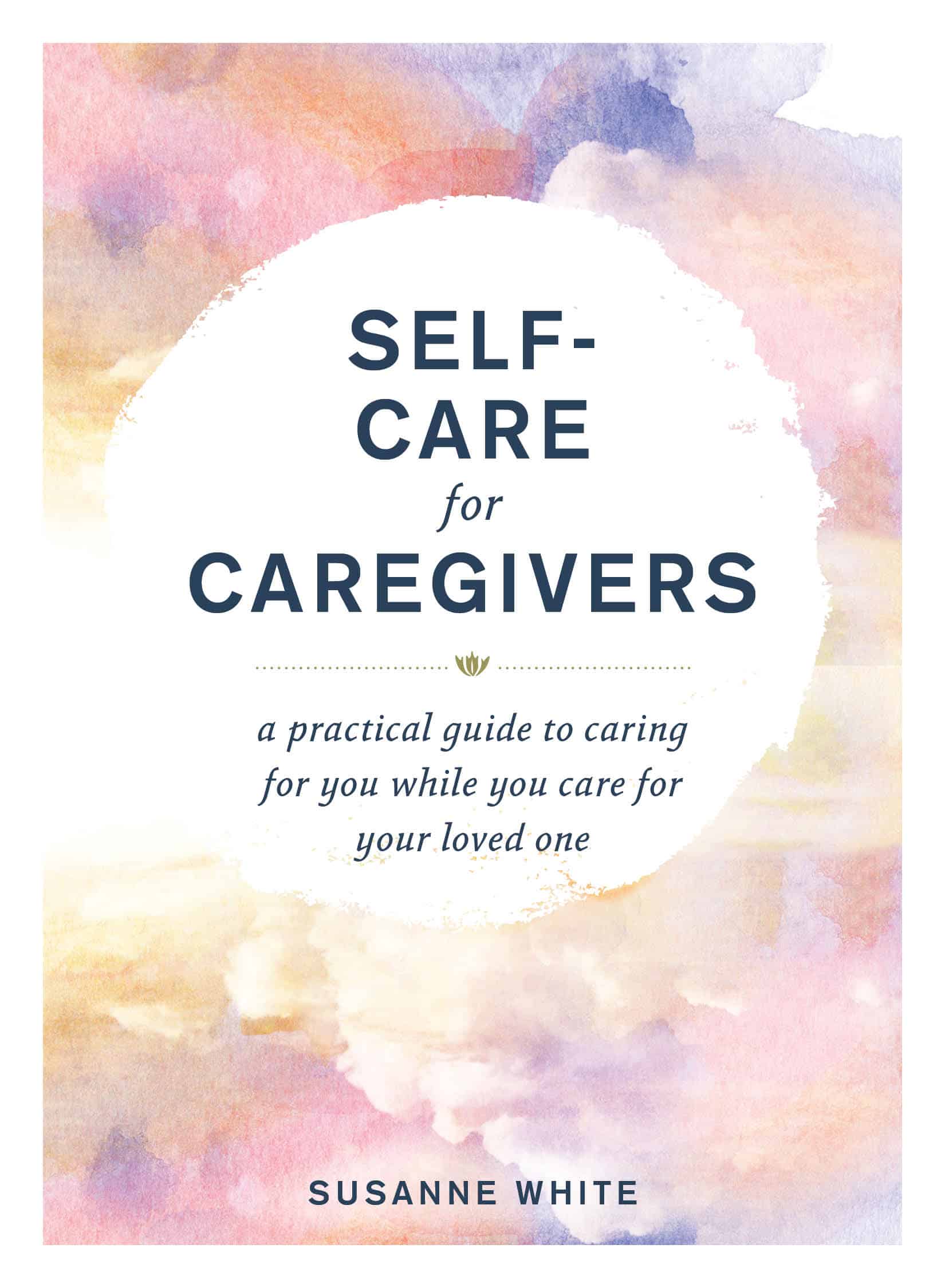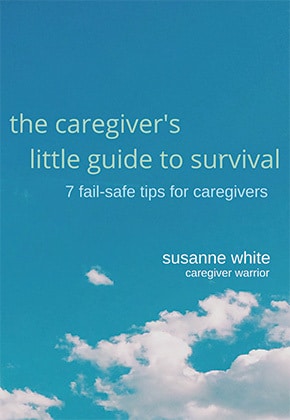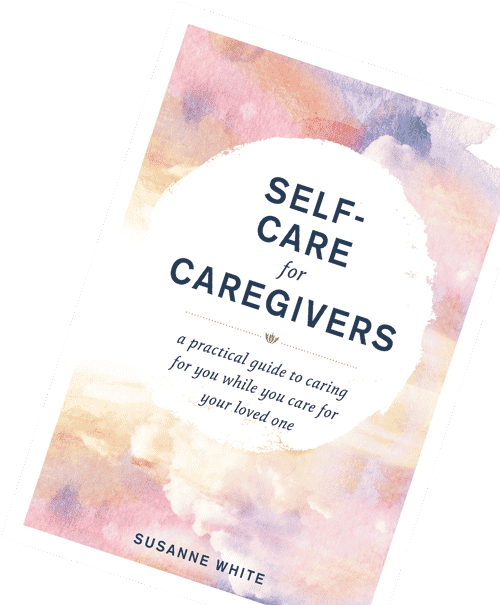My mom was diagnosed with dementia. When she began making up stories or would get confused about life around her my first inclination was to lovingly correct her or try to make her realize that she was mistaken. Little did I understand at the time that not only was I being condescending, but I was also making it worse and filling my mom with more fear and anxiety than she was already experiencing. She dug her heels in, got agitated because we were arguing, and become angry.
My Mom hated it when I corrected her!
I began to realize that correcting and arguing with her was not only ridiculous, but it was also damaging. I began to ask myself the following questions: “What did I have to prove, why was it so important that she remember things, and what did it matter if she was making things up?”
I began to see that my fear of her getting worse and slipping even further away from me was one of the many reasons I was trying to force her back to “reality” and into the world we used to live in where she was the mother, I the child and everything was ok.
My reaction was normal but damaging.
I was experiencing the normal reaction a child has when caring for a parent. I was desperately trying to put all the pieces back together in a puzzle that became increasingly more difficult to solve. The puzzle might never fit back in place the way it once did. I would have to stop trying so hard to make it all fit and just work with what I had. It might not be perfect, but it could be special just the way it was.
“Really Mom?”
Rather than correct her or argue with her, I went along with my Mom’s conversations in a calm, loving way by saying things like “Really mom?” “What happened?” I then truly listened to her response. Suddenly, our conversations changed dramatically. I softened, so she softened. She felt heard and I was able to lean into what she was saying. We enjoyed each other’s company far more than when I was trying to make her something she used to be or couldn’t be.
I created an opportunity for her to ask me for help.
This helped me relax into my general interaction with her. When it came to daily tasks it was also extremely helpful if I stood by and allowed her to try and do things by herself (unless by doing so would injure herself or others) and then pleasantly say things like “whatcha doin’ over here?” It created the opportunity for her to ask for my help without feeling ashamed or inadequate. It took the pressure off both of us.
It became very similar to working with a young child. You want to support their desire to accomplish something when in fact it may be beyond their ability. You need to be kind, positive and supportive. If you give them a chance to show you what they are trying to do because they think you are interested and cheering them on you can actually enjoy what’s happening. You can join in when appropriate and share the experience with them, avoiding frustration and shame.
As she got worse I got better.
As my mom got worse I got better at just letting her be. What difference did it really make if she insisted that something was green if it was, in fact, blue or if her memory of something was wrong or even if she was putting a shirt on backward? How important was it? Not important at all actually. But learning to let go of my need to argue or correct was of the utmost importance. Perhaps the most important thing I ever did for my Mom. She felt safer and I got to relax and enjoy things as they were. Which was so much better in the long run anyway.










Been there, done that! So true. Learn to live in their world with them. I really have fond memories of those days!
Ate the popcorn, have the t-shirt! I think it’s so amazing that you have such great memories! I do too and most of them are when I too lived in their world. Great advice, thanks!
I am so glad I found your blog. My mom came to live with me 2 years ago after the death of her husband of 65 years. He was 86 and she was 87 years old. I didn’t realized that they both had signs of early dementia because they lived in their home and was functioning quite well. He was still driving, going to doctors appt and grocery shopping. I thought everything was well, so I thought! I did notice small changes but I contributed it to the aging process. It was not until my father passed away and my mom came to live with me. I was wrong, it was the early onset of dementia. I had not prepare my self for this. I found myself angry, sad and embarrassed that I didn’t see this coming. How could I ignore such a process? Since then I have been reading and taking dementia classes. I pray a lot for understanding and forgiveness. So I appreciate this blog. It let me know that I could live in her world and thank GOD for the blessing of having her now at the age of 89 years old.
Thanks so much for sharing your story. My parents hid my Mom’s dementia for quite some time also and I too felt really guilty about not noticing earlier until I realized that they were only trying to protect her and us. I look back now and realize they were doing what they felt was best, and it worked for quite some time. I believe that my sister and I found out when we were supposed to and we took all the right actions as soon as we realized they needed our help. I know how awful it feels to be so overwhelmed by the disease. It’s so inspiring to all of us to hear how you are praying for understanding and working so hard to learn everything you can to care for your Mom. Your gratitude and grace are miraculous. You are a true Caregiver Warrior and my thoughts are with you. Much love.
Get into their world and see it from their perspective.
Never disagree but agree.
Rather than correct them try to validate what they are saying.
Yes! Going into their world and validating them is key! Great advice!
Thank you for this opportunity! My father has leukemia and on meds that make him very weak but he’s still cognitive and driving. He’s 83. My mother has dementia and he does everything for her. She very often refers to him as “”she” and we’re not sure who she thinks he is, she can’t answer us when we ask. He often calls me and says “please tell your mother who I am” and I proceed to talk to her about who he is and then she thinks I’m conspiring with “she” and gets upset. What should I do or say when this happens? I suggested to my dad that he could help her find “her real husband” but he’s at his witts end. Seeing Neurologist for the first time this month ??
Thank you so much for sharing your story. It helps so many of us in similar situations. I had the exact scenario in my life. My Mom was diagnosed with dementia and my Dad who had heart issues was her main caregiver. It was so hard for him to accept that my Mom was changing and no longer able to be the person he was so used to being with. I too had to really work hard to accept my “new” Mom. It’s heartbreaking and overwhelming and the disease is so demanding. Perhaps the doctor could discuss your Mom’s symptoms with your Dad which might help him understand that it’s the disease changing your Mom and how he might cope. We found it was a little easier to bear when we accepted that the Dementia was talking not my Mom. He might also be able to prescribe or suggest some counseling or home care help for your Dad. My Mom and Dad always listened to their doctors And health care workers over anything I said! Also, it helped my Dad sometimes when I would tell him that I know how hard it must be for him and even though she might not recognize him as she used to she knew he loved her and that was really the most important thing. I know during this crazy time we are living it’s so very hard but if there is anyway for your Dad to get a break as I’m sure you know, that would be so helpful. That generation is so selfless that we really need to almost gently push them into taking care of themselves somethings even before they care for others. Information is always power for me so reading up on their ailments and being able to understand all the phases and causes helped me personally. I would share this info with my Dad and sometimes it would help and sometimes he didn’t want or couldn’t hear me. Sometimes I just had to listen to him and I think he felt better. I hoped this helped a little. My thoughts and prayers are with you.
This was so helpful. Just this morning we had a disagreement about the washing machine. It is the new one that senses how much water to put in for the clothes. It is always my fault or my sister’s that the machine had been changed. Of course it had not. I wish I could find the old kind so she would be happier washing the clothes. I got upset and told her I couldn’t change the machine and I was sorry. Probably not the greatest moment. That’s for letting me vent. Depression is sneaking in and I am already taking something. God bless.
Thanks so much for sharing that! It helps so many of us to know we are not alone. If I had a nickel for every time I got upset with my Mom I’d be one rich lady! It is so hard when we are exhausted and overwhelmed. But the awareness helps us hit the re-start button. It’s so important that we are kind to ourselves about it. We are doing the best we can every day. I pray you can take a break or get some of that much needed and deserved rest. Even for a few minutes. When I was able to take a break or breathe deep I felt better about everything. Much love
Hi,
I moved my mom in with me. she was fine when she moved in almost 3 years ago. I was still working full time and she was fine home alone during the day. now, her dementia is getting worse, covid didn’t help, because now she doesn’t get to see her friends and doesn’t like going anywhere.
aside from all of this,( I am now home almost full time with her) she has stopped bathing. she said because it is cold in the walk-in tile shower. I told her I could help her with turning it on ahead of time. and the light above to keep warm and close the bathroom door.
I am willing to help her with all of this, but she doesn’t want me to help. I also thought about the electric heater. she wants to take care of herself.
Help, we seem to battle on so many things. she is difficult.
COVID is so hard on everyone. Socializing helps in so many ways for all of us, and now that it’s taken away we are all suffering! I too had a hard time with my Mom accepting my help, especially during shower time. I found quite a bit of help and information about this specific issue from the Alzheimers Association and Teepa Snow who is an amazing specialist for Alzheimer’s behavior. You can find her on Youtube. I remember learning that as my Mom’s dementia got worst, the shower spray became very frightening to her. I got her a shower chair, put on some of her favorite music, and worked really hard at being gentle and patient and asking her if she could help me when she could. I also tried to be more flexible about when and how often I helped her bathe. I hope this helps a bit. You are not alone and you are a true Caregiver Warrior!